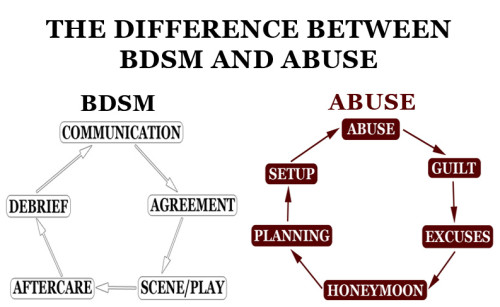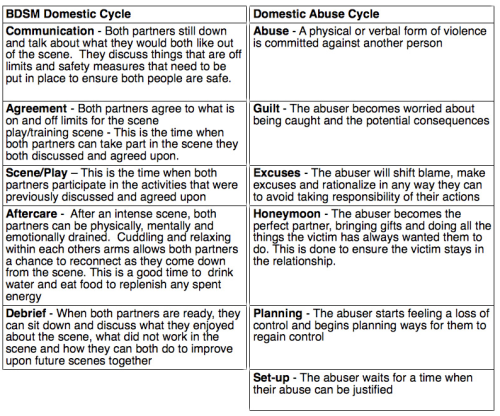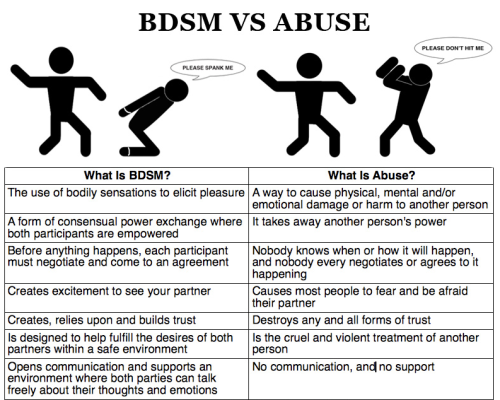#know the difference
anon asked: what’s the difference between -는 동안 and -(으)면서? I’m so confused
This is a great question! I am assuming you’re asking because they can be translated as the same thing into English. I understand why there will be confusion because, under context, these grammar points aren’t really distinguishable in English as they are in Korean.
-는 동안; while, during [goherefor more]
Use this when:
- You’re not talking about the same doer of the action [엄마가 설거지를 하는 동안 아빠는 화장실을 청소했어요 - Mom cleaned the dishes while dad cleaned the bathroom]
- You are talking about the same doer of the action [어제 공부하는 동안 문제가 생겼어요 - I found a problem while studying yesterday]
- The doer of the action is inanimate [비가 많이 오는 동안 구름이 어두워졌어요 - the clouds darkened while it poured]
Try to remember that 동안 is used for a period of time; “-는 동안”은 일정 기간 동안 사용되다. Consider the example in the first rule. Think of the context of this sentence as: during the time it took for my mom to do the dishes, my dad cleaned the bathroom. Yes, you can switch it around because contextually it means the same thing, “아빠가 화장실을 청소하는 동안 엄마는 설거지를 했어요.”
NOTE:Because “-는” attaches to the dependent clause [엄마가 설거지를 하는 동안], the verb before it does not take tense and underlyingly takes the tense of the independent clause’s verb [아빠는 화장실을 청소했어요]. I used the past tense [과거] in my examples, but you can use the present tense [현재] or future tense [미래], obviously, depending on what you want to say.
More Examples:
- 한국에서 사는 동안 한국어를 빨리 배웠어요 - While I lived in Korea, I learned Korean quickly.
- 대학교 디니는 동안 어디에서 살 거예요? - Where are you going to live while attending University?
- 아빠가 저녁을 준비하는 동안 저는 보통 숙제를 해요 - I usually do my homework while my dad makes dinner.
- 희주가 세수하는 동안 혜민은 이를 닦았어요 - While Heeju washed her face, Hyemin brushed her teeth.
- 제가 자는 동안 고양이는 제 식물을 먹었어요 - While I slept, my cat ate my plants.
-(으)면서; while
Use this when:
- The doer of the action is the same [희주는 먹으면서 유튜브를 봐요 - Heeju watches YouTube while eating]
- The action is happening simultaneously [지하철을 기다리면서 친구하고 전화했어요 - I waited for the metro while I called my friend]
- Contrasting two actions [대현은 한국에서 일하고 싶다고 하면서 한국어를 못해요 - Daehyun said they wanted to work in Korea, but they don’t speak Korean]
NOTE: You can only use -(으)면서 when talking about the same doer of the action or state. For example, 희주는 일하는 동안 음악을 들었어요 and 희주는 일하면서 음악을 들었어요. BOTH work and are grammatically correct. The working and listening to music is being done by 희주, whether at the same time, or during work. However, a sentence like “희주는 일하면서 혜민은 음악을 들었어요” is grammatically incorrect. Even if 희주 and 혜민 are doing this at the same time, you must use -는 동안.
More Examples:
- 샤워하면서 노래를 불렀어요 - While showering, I sang
- 요리하면서 요리법을 봐요 - While cooking, I read a recipe
- 수업을 들으면서 메모를 해요 - I take notes while in class
- 운전하면서 문자를 보내지 마세요 - Don’t text while driving
- 희주는 숙제를 하면서 음악을 들어요 - While Heeju does her homework, she listens to music
Differences between the two:
- You can use 동안 with nouns [명사], you cannot use (으)면서 with nouns. However, you can use (이)면서 with nouns in conjunction with 이다 [저는 대학생이면서 선생님이에요 - I am a university student and a teacher]. This expresses two states of being that happen at the same time.
- You can not use -는 동안 to contrast actions
- You MUST use the same doer of action with (으)면서
- -는 동안 expresses an action that occurs during a period of time; -(으)면서 does not necessarily take place at a specific time
Similarities between the two:
- You attach tense at the end of the sentence, you cannot attach tense to the dependent verb
- They are, most of the time, interchangeable; just remember the rules above
BONUS! -(을/ㄹ) 때; when
The closest origin of “때” I could find in 한자 is “時”. “때” refers to an event/time/period of action (another translation of 時 can be 시).
Things to remember:
- You can use -때 with nouns and -(을/ㄹ) 때 with verbs.
- Because it refers to a specific moment, you can attach tense to -(을/ㄹ) 때
- You can use this with adjectives!
- Can be used with -까지 and -부터! [때 + 부터 = since// 때 + 까지 = until]
Examples:
- 비행기를 도착할 때 엄마하고 전화할게요 - When my plane lands, I’ll call my mom
- 대학생[이였을] 때 돈이 없었잖아요 - When I was a uni student, I didn’t have money, as you know
- 한국 친구에게 한국말로 하기 시작했을 때 마이클은 깜짝 놀랐어요 - When I started speaking Korean to my Korean friend, Michael was surprised!
- 공부할 때 음악을 들어요 - When I study, I listen to music
- 시간이 있을 때 알려주세요 - Let me know when you have time
- 16살 때부터 한국어를 배웠어요 - I’ve been learning Korean since I was 16
- 이렇게 될 때까지 더 씻어야 해요 - You have to wash it more until it’s like this
- 한국에 갈 때 홍대하고 제주도 방문하고 싶어요 - When I go Korea, I want to visit Jeju and Hongdae
- 혜민 언니는 한국에 들어갔을 때 제가 너무 슬펐어요 - I was so sad when Hyemin when back to Korea
- 어렸을 때 그림을 그리기 시작했어요 - I started drawing when I was a kid
Hope this helps! If there’s any more confusion, please, don’t hesitate to send another message or ask!
Happy Learning :)
~ SK101
anon asked: I was studying and came across the sentence 별이 보여요. I looked on Papago and I’m confused. anything helps at this point. Thanks!
Hey, no worries! I got you!
The sentence 별이 보여요 actually means “the stars are seen”. 보이다 is a passive verb (수동태), whereas, 보다 is an active verb (능동태). What this means is that the subject either is doing the action or receives action from the verb.
보다 - to see
보이다 - to be seen
Passive and active verbs are super common in English (if used sparingly). For example, you can say, I threw the ball (I did the action to the ball) or, the ball was thrown by me. This shows that the action is done (passive) by the objective me, to the subjective ball.
Here are some more examples in Korean:
- 별을 봐요 - I see the stars
- 별이 보여요 - The stars are seen
- 사자가 토끼를 봤어요 - The lion sees the rabbit
- 토끼가 사자에게 보였어요 - The rabbit is seen by the lion
- 많은 사람들은 영화 기생충을 봤어요 - Many people watched the movie Parasite
- 영화 기생충은 많은 사람들에게 보여졌어요 - The movie Parasite was seen by many people
Hope this answers your question! If there’s any more confusion, please don’t hesitate to pm or send another ask! Happy Learning :)
~ SK101
anon asked: what’s the difference between 끊다 and 자르다?
Great question! Hopefully my answer helps! Both can mean “to cut” but here’s a better explanation:
One is used abstractly, while the other is used for more concrete situations. When you want to cut something for a recipe, or cut a piece of paper, you use 자르다. When you want to hang up the phone, or quit smoking, you use 끊다.
끊다 - cut (something abstract); not a literal cutting of something
- 이만 끊을게요 - I’ll hang up (on the phone)
- 앞으로 담배를 끊을 거예요 - From now on, I’m going to quit smoking.
자르다 - cut (something concrete); a literal cutting of something
- 종이를 반으로 자르세요 - cut the paper in half
- 이렇게 잘라야 해요 - you should cut it like this
- 머리 잘라서 머리가 짧아졌어요 - my hair got shorter because I cut it
Hope that helps! Happy learning :)
~ SK101
anon asked: what’s the difference between 부터&까지 and 에서&까지? Please let me know
안녕하세요! Hello! The difference is quite simple :)
부터 ~ 까지: (시간)
- specific to time in general
♡ Example Sentences:
- 1시부터 2시까지 친구를 만났어요
I met my friend from 1:00 to 2:00 - 월요일부터 금요일까지 일해요
I work from Monday to Friday
에서 ~ 까지: (장소)
- specific to distance, destination, and place
♡ Example Sentences:
- 캐나다에서 한국까지 어떻게 가요?
How do I get from Canada to Korea? - 학교에서 대학로까지 버스로 갔어요
I went from school to Daehangno by bus
Hope this helped! If you need any more examples, let me know! These are pretty good grammatical points to know.
Happy Learning :)
~ SK101
what queerbaiting is:
setting up, advertising, or alluding to queer relationships in media with no intention of actually depicting that relationship in order to capitalize off of queer viewers without scaring away general audiences.
what queerbaiting is not:
- popular fandom ships not becoming canon
- ambiguous or unconventional queer stories
- real people experimenting with their gender or sexuality
- and anything else that doesn’t fit the definition above
*nails this to the doors of tumblr like I’m Martin Luther*
Emperor Nero auditions to Rome’s got Talent, and - of course - wins the judges over with his charm and skills
What a lovely performance!!
I’m gonna make something REAL CLEAR.
As an aro, I often preach that we need to be working together, (as the aspec community and as a society in general,) to dismantle the norms that say every person wants/needs a partner, that everyone needs to get married, and that those things are requirements for happiness. I don’t think that’s too much to ask, especially because these norms harm many different groups of people, not only aspecs.
What I’m really tired of, is allos automatically assuming that because I preach these things, that I hate marriage, romance and love, that I have a vendetta towards people who engage in those things, and that I want to make alloromantic people feel guilty for being alloromantic.
It’s another classic case of “it’s not about you, it’s about the systemic norms we all live with and experience in day-to-day life.”
I hold no hate or dislike towards anyone who is in a romantic relationship, married, or engaging in other romantic activities with a partner or partners. Really. I have two parents and many family members and friends that are happily married and in love.
That being said, I don’t want to engage in romance and I am not alloromantic, so these norms impact me in a profound way that’s sometimes hard to describe. I want to dismantle the norms because it will make my life and many other’s lives a lot easier. This does not mean, however, that I support the absolute collapse of the components of these norms.
If some people’s thoughts didn’t always jump straight to “this person’s views and opinions are attacking me and my lifestyle,” when engaging in conversations about amatonormativity and the norms that come with it, then they would recognize that most aromantic people actually support romance-favourability.
Know the difference between dismantling the systemic romantic normsandabolishing the entire system of romantic components and ideas whichencompass said norms.
The former is an effective way to make many groups of people feel more comfortable and less alienated, and the latter is just as ineffective and discriminatory as pushing for romantic norms to be continued they are now. As aros, most of us just want to feel like we belong in a society that constantly reminds us that we don’t. It is not our goal to make allos feel guilty, or to radically change society’s ideals to fit an inherently romance-negative narrative.
We just want to dismantle amatonormativity in society, by changing the mindset and narrative to a way of thinking that does not discriminate between alloromantic and aromantic people. That’s all.




